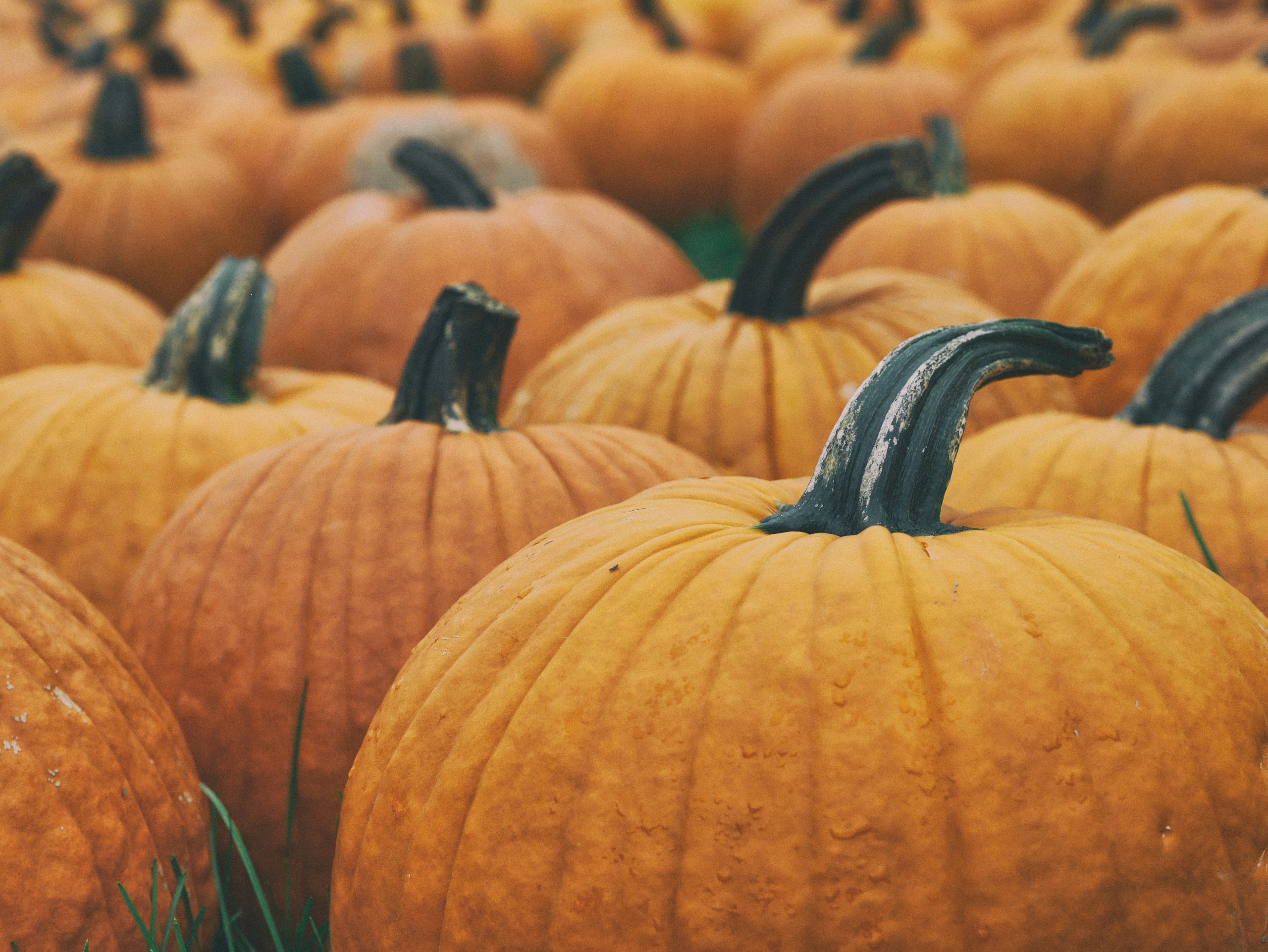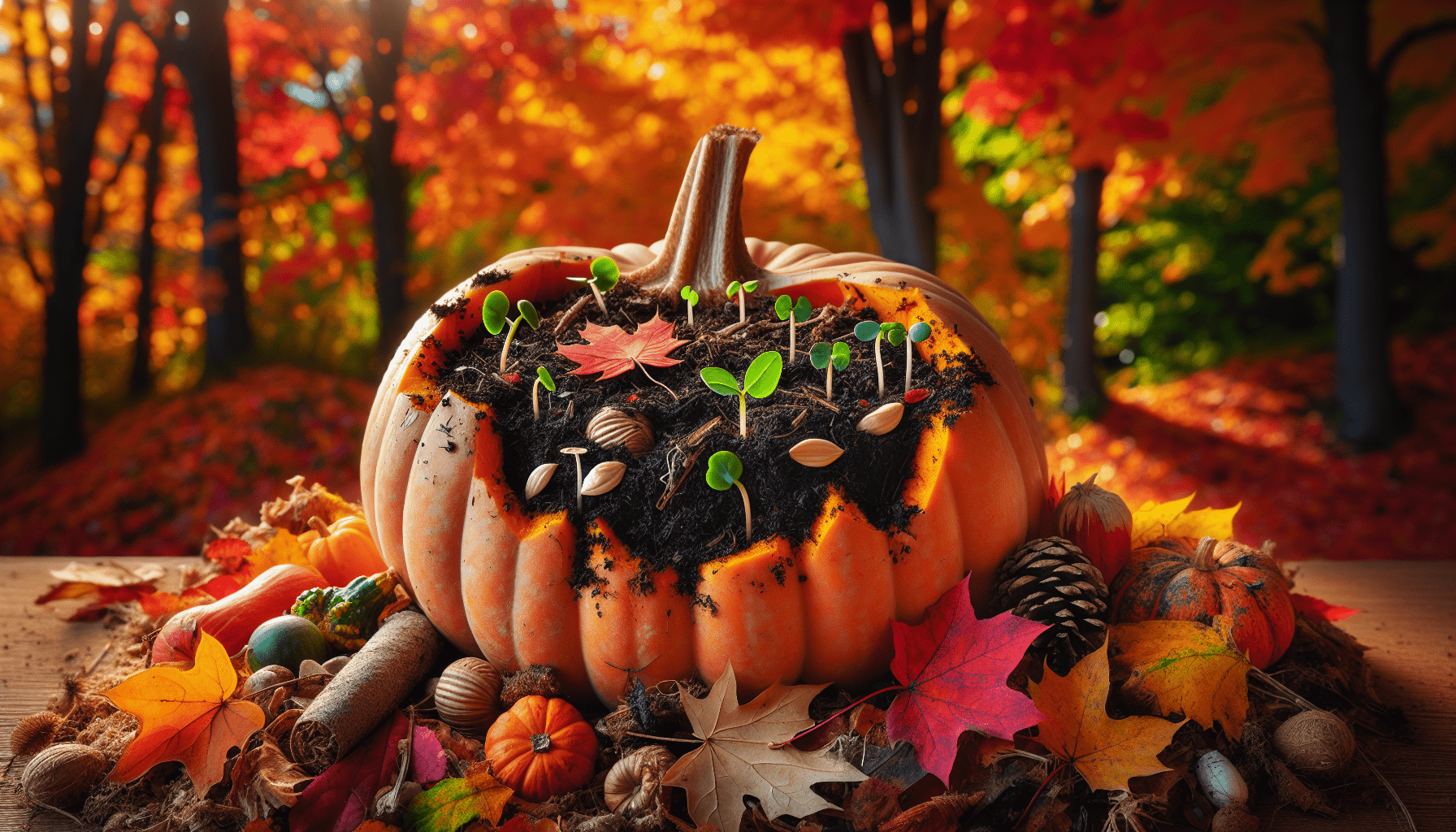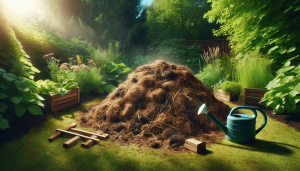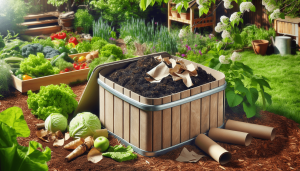What do you do with your pumpkins once the festive season is over? It’s common to wonder about their disposal, and the good news is, yes, you can compost them! In our article, “Can I Compost Pumpkins?” we’ll delve into the benefits and simple steps of adding these seasonal gourds to your compost pile. We’ll share tips on how to break them down effectively and even explore some creative ways to use them in your garden. By the end, we hope you’ll feel inspired to turn your pumpkins into nourishing compost that enriches our gardens and the environment. Have you ever wondered, “Can I compost pumpkins?” As we carve out our Halloween jack-o’-lanterns or prepare pumpkin pies for family gatherings, disposal becomes an afterthought. Instead of tossing those pumpkin remnants into the trash, how about we turn them into something beneficial like compost? In this article, we’ll explore everything about composting pumpkins, answering your questions and providing you with all the information you need.

Understanding Composting
What Is Composting?
Composting is the natural process of recycling organic matter, such as leaves and food scraps, into a valuable fertilizer that can enrich soil and plants. When we compost, we are helping to divert organic waste from landfills, decrease garbage costs, and replenish local soil and crops with essential nutrients.
Why Compost Pumpkins?
Pumpkins are organic matter, rich in nutrients like nitrogen, potassium, and phosphorus that can greatly benefit the compost. Instead of producing methane in a landfill, pumpkins can break down into the soil in a compost heap, creating a delightful environment for beneficial microbes and plants.
Benefits of Composting Pumpkins
Enriching Soil
When pumpkins decompose in a compost pile, they break down into rich, crumbly soil known as humus. This humus improves soil structure, water retention, and root growth, creating a healthier environment for our garden plants.
Reducing Waste
One of the significant advantages of composting pumpkins is the reduction of organic waste in landfills. Given that pumpkins are biodegradable, they are excellent candidates for composting rather than contributing to waste problems.
Saving Money
By composting pumpkins, we can create our own rich soil amendments. This cuts down on the need for commercial fertilizers and soil conditioners, saving money while promoting a healthier environment.
The Process of Composting Pumpkins
Step 1: Preparing the Pumpkin for Compost
Before tossing our pumpkins into the compost pile, it’s essential to prepare them properly:
- Remove Non-Organic Materials: Take out candles, decorations, and any other non-organic materials. These items won’t decompose and can disrupt the composting process.
- Chop the Pumpkin: Breaking down the pumpkin into smaller pieces accelerates decomposition. A pumpkin that is merely thrown in whole will take much longer to break down.
Step 2: Adding to the Compost Pile
When adding the pumpkin pieces to compost, it’s crucial to remember the composting rule of balancing greens and browns:
- Greens (Nitrogen-rich materials): Fruit scraps, vegetable scraps, coffee grounds, and, of course, our pumpkins.
- Browns (Carbon-rich materials): Dry leaves, straw, cardboard, and eggshells.
Here’s a simple table to help with the balance:
| Type | Examples | Role |
|---|---|---|
| Greens | Pumpkin pieces, vegetable scraps | Adds nitrogen |
| Browns | Dry leaves, straw, cardboard | Adds carbon |
By maintaining this balance, we ensure that our compost pile stays healthy and effective.
Step 3: Maintaining the Compost Pile
To keep our compost pile functioning optimally, we need to:
- Aerate: Turn the compost regularly to maximize oxygen circulation and speed up decomposition.
- Moisture: Keep the pile moist but not waterlogged. Too much moisture can cause the pile to become anaerobic, leading to unpleasant odors.
Dealing with Common Composting Issues
Odor Problems
If our compost pile starts to smell bad, it generally means there is too much green material or it’s too wet. Adding more browns and turning the pile will usually solve this issue.
Slow Decomposition
Sometimes, the pile might not break down as quickly as we’d like. If this happens, it could be due to an imbalance in greens and browns, lack of aeration, or insufficient moisture. Adjusting these factors should accelerate the process.

Utilizing Pumpkin Compost
In the Garden
Once our pumpkin compost has matured into rich humus, it can be used in the garden to improve soil health. Whether we’re growing flowers, vegetables, or herbs, this compost will provide the nutrients our plants need to thrive.
As Mulch
We can also use pumpkin compost as mulch. Applying a layer of compost around our plants helps retain soil moisture, suppress weeds, and provide nutrients over time.
Alternative Uses for Pumpkins
While composting is a fantastic option, there are other creative ways to reuse pumpkins:
Pumpkin Seeds
We can roast pumpkin seeds for a tasty snack, or save them for planting next year’s pumpkin patch.
Pumpkin Flesh
Pumpkin flesh can be used in a variety of recipes, from soups to pies. Even after Halloween, pumpkins can contribute to our culinary endeavors.
Feeding Wildlife
Some of us might have local wildlife that would appreciate the extra food. Squirrels, deer, and birds can benefit from leftover pumpkin pieces.

Environmental Impact of Composting Pumpkins
Reducing Greenhouse Gases
When organic matter like pumpkins ends up in landfills, it decomposes anaerobically and releases methane, a potent greenhouse gas. By composting pumpkins, we are helping to reduce methane emissions and combat climate change.
Promoting Sustainable Practices
Composting encourages sustainable living by reducing waste, recycling nutrients, and promoting healthier plant growth. It’s a simple yet effective way to contribute to environmental sustainability.
Community Involvement
Community Composting Programs
Many communities offer composting programs where residents can drop off their organic waste. Participating in these programs can make a substantial difference in local waste management efforts.
Educational Workshops
Local gardening clubs or environmental organizations often conduct workshops on composting. These can be excellent opportunities for us to learn more about how to compost effectively and share that knowledge with others.

Troubleshooting Composting Pumpkins
Dealing with Pests
Pests can sometimes be attracted to compost piles, especially if there’s a high content of food scraps. To mitigate this, we need to:
- Cover Food Scraps: Burying the pumpkin pieces under a layer of browns can help.
- Secure the Pile: Using a pest-proof compost bin can prevent unwanted visitors.
Managing Temperature
A compost pile needs to maintain a certain temperature to decompose efficiently. We can ensure this by:
- Insulating the Pile: Adding layers of straw or using a compost bin helps retain heat.
- Turning the Pile: Aeration through turning increases microbial activity, which generates heat.
Seasonal Composting Tips
Fall
Fall is a fantastic time for composting as we can easily collect fallen leaves (browns) to pair with our pumpkins (greens). This is also when many of us have a supply of pumpkins from Halloween activities, making it an ideal season to start.
Winter
While composting can slow down in the cold, maintaining our compost pile during winter is still possible. Insulating the pile and turning it less frequently can keep the decomposition process going, ready for springtime use.
Spring and Summer
These warmer months are peak composting seasons. By spring, our pumpkin compost should transform into rich soil, perfect for starting new garden projects. During summer, we can continue to add to our pile, maintaining the balance of greens and browns while keeping it moist.
Encouraging Others to Compost
Sharing Knowledge
By sharing our knowledge and enthusiasm for composting, we can encourage friends, family, and neighbors to start composting as well. Whether through social media, blogs, or casual conversations, spreading awareness about the benefits of composting can make a positive impact.
Community Projects
Getting involved in community composting projects can amplify our efforts. These projects often provide resources and support for individuals wanting to start composting but unsure where to begin.
FAQs
Can I Compost Pumpkin Seeds?
Yes, pumpkin seeds can be composted. However, if not broken down or ground up, they might sprout in the compost pile. To prevent this, you can chop or grind them before adding them to the pile.
Can Painted Pumpkins Be Composted?
It depends on the paint. Pumpkins painted with water-based or natural paints can be composted, but those with synthetic or toxic paints should be avoided, as they can harm the compost.
How Long Does It Take for Pumpkins to Decompose?
Pumpkins can take a few months to decompose fully, depending on the composting conditions like temperature, moisture, and aeration. Smaller pieces and a balanced pile will speed up the process.
Conclusion
So, can we compost pumpkins? Absolutely! Pumpkins are an excellent addition to our compost piles, offering numerous benefits for the soil, environment, and our wallets. By understanding the composting process, preparing our pumpkins correctly, and maintaining our compost piles, we can transform pumpkin waste into valuable humus for our gardens. Let’s embrace composting not just as a way to manage waste, but as a sustainable practice that enriches our lives and the planet.
Happy composting!



